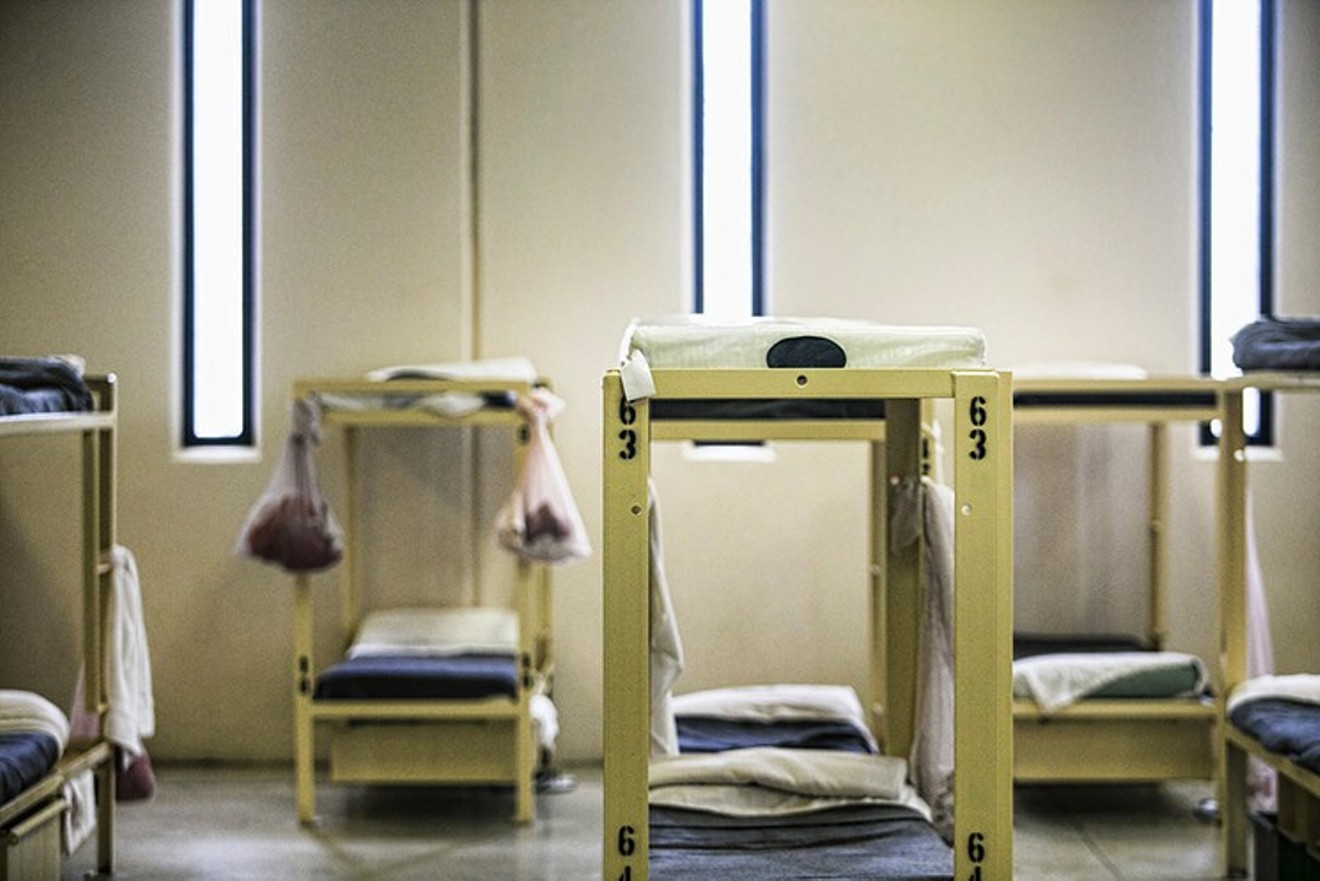A Miami immigration judge with less than two years of experience on the bench was fast-tracked for a permanent position on the nation's highest immigration court. The move has raised concerns about politicized hiring at the Justice Department.
Deborah Goodwin was one of six judges handpicked by Justice Department officials to fill vacancies on the Board of Immigration Appeals (BIA), a 21-member appellate court that sets binding legal precedents for more than 400 immigration judges serving in the nation's 57 immigration courts. These six judges, who have little in common other than their markedly high rates of asylum denial, were permanently added to the board in August without undergoing any probationary period, according to documents obtained through Freedom of Information Act requests by the investigative website Muckrock.
Memos sent to the office of Attorney General William Barr in July reveal that the Executive Office for Immigration Review (EOIR), which oversees the nation's immigration courts, adopted new hiring procedures in March to evaluate candidates. It was "EOIR practice" to appoint a board member temporarily and require that person to complete a two-year probationary period, but the agency now believes that a sitting immigration judge has "the same or similar skills" as an appellate judge and should therefore be immediately installed permanently. The memos, obtained by Muckrock and shared with CQ Roll Call, were written by EOIR Director James McHenry.
"This is clearly a political move. There's no question about it," says Jason Dzubow, a D.C.-based immigration lawyer who runs the blog the Asylumist. "And there's no way someone looking at the appearance of this can consider the hirings good for fairness in the immigration court system."
Goodwin has a strong background in immigration enforcement: She worked as an associate legal adviser and assistant chief counsel for Immigration and Customs Enforcement. The judge, who presides over the court in Miami-Dade's Krome migrant detention center, began hearing cases in 2017. As of the end of last year, she had an asylum denial rate of 89 percent, according to Syracuse University's Transactional Records Access Clearinghouse. That's far above the national average of 57 percent during the same period and almost 10 percentage points higher than the average for the Miami immigration court as a whole.
Of the six judges, Goodwin — who was appointed by former Attorney General Loretta Lynch — has received relatively little attention due to her limited time on the bench. Other appointees, such as Atlanta's William Cassidy and Charlotte's Stuart Couch, have been far more controversial. Cassidy, who had an asylum denial rate of 95 percent between 2013 and 2018, has been the subject of various complaints from immigration attorneys over the years. Couch, who had a rejection rate of 92 percent, issued ten rulings in 2017 that were found "clearly erroneous" by the Board of Immigration of Appeals. All ten of those of rulings involved the rejection of asylum claims by women who had been victims of domestic violence.
In a recent interview with Dzubow, former U.S. Chief Immigration Judge MaryBeth Keller said the recent BIA hirings were "stunning."
"I think [immigration judges] are generally eminently qualified to be board members, but to bring in all six from the immigration court? I'd like to think that the pool of applicants was more diverse than that," Keller told Dzubow. "I find these recent hires to be very unusual."
Immigration judges, and appellate judges in particular, can come from a wide range of legal and professional backgrounds, although scandals of politicized hiring have cropped up in the past. In 2008, a report by the Office of the Inspector General revealed the George W. Bush administration had engaged in illegal hiring practices for years by selecting immigration judges based on their political views. Perhaps unsurprisingly, immigration judges selected during that time were found to have disproportionately denied asylum claims.
Paul Wickham Schmidt, a former immigration judge and former head of the Board of Immigration Appeals, responded to the new appellate court appointments on his blog, immigrationcourtside.com: "The idea that six judges with asylum denial rates astronomically above the national average of 57.1% were the 'best qualified' for these appellate jobs is simply absurd... It seems that a Congressional investigation into the selection process would be well warranted, including a look at the qaualifications [sic] of candidates who were passed over."
[
{
"name": "Air - MediumRectangle - Inline Content - Mobile Display Size",
"component": "19274298",
"insertPoint": "2",
"requiredCountToDisplay": "2"
},{
"name": "Editor Picks",
"component": "17482312",
"insertPoint": "4",
"requiredCountToDisplay": "1"
},{
"name": "Inline Links",
"component": "18711090",
"insertPoint": "8th",
"startingPoint": 8,
"requiredCountToDisplay": "7",
"maxInsertions": 25
},{
"name": "Air - MediumRectangle - Combo - Inline Content",
"component": "17482310",
"insertPoint": "8th",
"startingPoint": 8,
"requiredCountToDisplay": "7",
"maxInsertions": 25
},{
"name": "Inline Links",
"component": "18711090",
"insertPoint": "8th",
"startingPoint": 12,
"requiredCountToDisplay": "11",
"maxInsertions": 25
},{
"name": "Air - Leaderboard Tower - Combo - Inline Content",
"component": "17482313",
"insertPoint": "8th",
"startingPoint": 12,
"requiredCountToDisplay": "11",
"maxInsertions": 25
}
]












